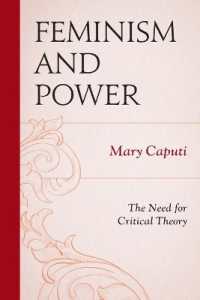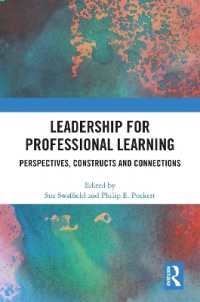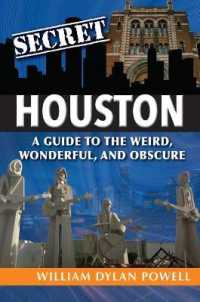- ホーム
- > 洋書
- > 英文書
- > Literary Criticism
Full Description
Uses literature, art, and cultural texts from the British Romantic period to explore the age in which biological life and its abilities first became regulated by the rising nation.
In Beasts of Burden, Ron Broglio examines how lives-human and animal-were counted in rural England and Scotland during the Romantic period. During this time, Britain experienced unprecedented data collection from censuses, ordinance surveys, and measurements of resources, all used to quantify the life and productivity of the nation. It was the dawn of biopolitics-the age in which biological life and its abilities became regulated by the state. Borne primarily by workers and livestock, nowhere was this regulation felt more powerfully than in the fields, commons, and enclosures. Using literature, art, and cultural texts of the period, Broglio explores the apparatus of biopolitics during the age of Adam Smith and Thomas Malthus. He looks at how data collection turned everyday life into citizenship and nationalism and how labor class poets and artists recorded and resisted the burden of this new biopolitical life. The author reveals how the frictions of material life work over and against designs by the state to form a unified biopolitical Britain. At its most radical, this book changes what constitutes the central concerns of the Romantic period and which texts are valuable for understanding the formation of a nation, its agriculture, and its rural landscapes.
Contents
Illustrations
Acknowledgments
1. Animal Life and Rural Labor: Literary and Material Resistance in Biopolitical Britain
2. Docile Numbers and Stubborn Bodies: Population and the Problem of Multitude
3. On Vulnerability: Studies from Life That Ought Not to Be Copied
4. Wonder as Resistance: Sheep, Fairies, and James Hogg the Ettrick Shepherd
5. Animal Dwelling in Natural History: Thomas Bewick, George Stubbs, and Corporality
6. Man Proposes, Animality Disposes: Antihuman Landseer with Implications for Biopolitical Britain
7. Afterword: Romanticism in the Dust of This Planet
Notes
Bibliography
Index








